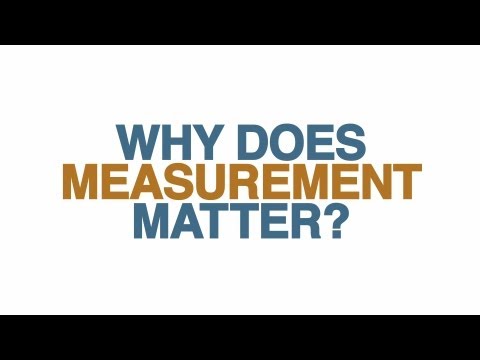Contents
The world’s fiercest, winningest fencing team has arrived! But this isn’t a reprisal of their gold medal moments. When it comes to looks, energy and showing off — they’re not shy.
- For example, in the user interface of PressBooks, Brad Payne has built some textbook specific buttons that insert specific types of content blocks into PressBooks .
- That’s why nobody expected such harsh accusations or the ghost stories!
- But from my view, I can see areas where it makes sense to come together, collaborate, find shared commonalities and potential opportunities that could benefit all.
- The bromance of singers Yong-hwa Jung and Zico stars today.
The stars of ‘Doctor Prisoner’ are sentenced to the classroom. Namkoong Min, Jang Hyun-sung and Lee Jun-hyueok surprise with their musical skill and quick wit. In the series’ top-rated episode, mega-star IU drops into the classroom with former co-star Lee Joon-gi to celebrate 10 years at the top of the K-pop charts. It’s no wonder fans crush on the lovely Lee Honey. In class, she radiates down-to-earth style and performs beautifully on the gayageum, a string instrument. F.T. Island’s Lee Hong-gi makes a rare appearance since pursuing indie music projects.
Produce a short film in 2 weeks
And, given the mammoth task ahead of us to create a 1st year Geography textbook in 4 days, we decided that rather than add a level of complexity onto the process, we would stick with what our facilitators were familiar with working with. So, our first task post-sprint is to transfer the book from PubSweet to PressBooks Textbooks. So, to the innovators – keep on innovating and please don’t pull away from the community. Push the edges, do cool stuff, bring it and share it and show people that there is an open world post-textbooks . A way to distribute education related open source applications.

First, there is a peer review process where faculty can review the tool and leave feedback for their peers, similar to the CASA model that I wrote about a few weeks ago, and which I love. In a nutshell, NGDLE is the idea that the next generation of learning tools isn’t the single monolithic LMS, but rather a series of applications connected together using different sets of emerging and established History of Affirmative Action learning tool standards. Ere is the fantasticPressBooks goodness Brad is whipping up here at BCcampus to support the open textbook project, and the work at TRU being done by Brian Lamb and Alan Levine. I have also been heartened to see academics who treat the platform seriously and realize that the worlds largest repository of open knowledge is being heavily used by people in their daily lives.
Connecting with faculty
I have been jolted back to some of the past work I did on network learning and informal learning, much of which went into my Masters thesis. Things I haven’t thought or written about in years. I think this holistic view of open pedagogy as a messy space where the values of openness inform teaching and learning practices is one that appeals to me. So, with that definition, the assignments that these students have done are not open pedagogy. While some of them do use open access resources , none of the students have released their material with an open license, and, in fact, some resources are made available with full copyright and only under academic fair use policy. The context of the event was to give Digital Humanities students an opportunity to showcase the DH projects they have been working on to fulfill the requirements of their various undergrad/graduate level DH programs at UVIC and SFU.
First and foremost, the 5 Geography faculty who were brave enough to commit to locking themselves in a room with a bunch of strangers to write a book in an incredibly short amount of time. The first to sign on was Arthur Green of Okanagan College, followed by Britta Ricker , Siobhan McPhee , Aviv Ettya , and Cristina Temenos . These people worked incredibly hard, putting in hour days, to create the book. Barbara Ruehling from BookSprints facilitated the entire event, assisted for the first 2 days by Faith Bosworth. UBC librarian Jon Strang was a priceless resource. The BCcampus support crew of Amanda Coolidge, Hilda Anggraeni (who was our illustrator and created & contributed dozens of maps and graphs during the sprint), Brad Payne and Christy Foote.

Which made me consider open pedagogy and the way in which open pedagogy is defined. Granted, that term “open pedagogy” is fairly new and evolving. My first exposure to the term was in a 2013 (was it really 4 years ago?) blog post from David Wiley where David defines open pedagogy as being directly connected to the 4R permissions of OER .
Teacher proofing leads to generic plug and play courses. TheMcDonaldization of higher education where someone (paid at $8 an hour) delivers a generic meal to you that tastes the same as every other meal. That $8 an hour person doesn’t really care about the meal they are putting down in front of you. Beyond the final steps of heating the food, they have no idea how the food is actually made. They are completely divested of any involvement in the actual quality of the food. They are more concerned about filling orders and pushing bodies through the door.
I’m still early in my research so it is hard to draw any definite conclusions yet. But articles like these help me flesh out pedagogical features of our textbooks. For example, all the articles note that students use bold and italicized text . But knowing that those features will actually be used by students helps to guide our advice to open textbook authors. When you make a textbook, concentrate on the way you use bold and italicized text because students will be looking for that to help them understand the content.
This can range from chapter outlines and summaries to practice questions and glossaries. Still, it isn’t hard to see how a pedagogical aid could negatively affect student performance if the student tries to get by on the built in aids as an alternative to doing the actual reading. If a student sees the aid as a shortcut to doing the actual reading, then it isn’t hard to imagine that these tools could affect student learning. A scenario where a student is crunched for time and instead of doing the reading for the course instead relies on the chapter summaries to give them all the information could be fairly common.
International star Rain returns to the big screen as “King of Cycling” with Lee Bum-soo producing. It gets loud in the classroom as they fight to promote it. Four big stars fill the classroom with laughter. Moon Hee-joon, Sam Hammington, Don Spike and Tae Hangho are here to celebrate the Year of the Golden Pig. She sheds her evil goddess image in class to show off her sweet and funny side. But it isn’t long before her villainous tendencies surface.
Prince Harry joins pop royalties like Selena Gomez, J-Lo at ‘Vax Live’ concert in Los Angeles
He and quirky actress Lee Soo-kyung get increasingly absurd as they host. Team Men on a Mission faces off against boy group SHINee in physical education class. One man from the losing team will have to dress up as a woman. From “Women on a Mission” high school, seven “sisters on a mission” test the men on how much they know about women in this Chuseok holiday special. With Joon Park from the K-pop group “god” and Lee Soo-min, a young emcee and actress, the class writes poems about one another and sings karaoke. Russian nudist colonies comic of sex mom forced me porn free irish porn stream.
I want others to be able to use the stuff I share to better understand their world. If a word I write, or a photo I take or a video I make helps someone somewhere understand something a bit better, then I am a happy man. The OER Research Hub has published a new study in OpenPraxis looking at the impact of OER on teaching & learning practice. Okay, that is likely just me heaping a lot of representational baggage on the poor old textbook.
In short, we need to be developing ways to empower and educate our students into taking control of their own data and understanding how their data is being used for them. And if you can’t articulate the “for” part, then perhaps you shouldn’t be collecting the data. First, when it comes to predictive analytics, we need to know what is happening inside the black box. Companies need to be very explicit about what information is being gathered, and how that data is being processed and interpreted by the algorithms to come up with scores that say a student is “at-risk”.
Meme to Buzz: Hunt for hottest tickers creates a new gray market on Wall Street
For example, at this conference I found out about the IONiC and VIPEr . IONiC is an online network for teachers of inorganic chemistry, and VIPEr a repository of teaching materials freely available for inorganic chemistry faculty. Both these were started not by open education advocates, but by inorganic chemistry faculty themselves. They wanted space to share resources and develop community. It’s a grassroots lesson in sharing and connecting, driven by the faculty, driven by the community and not by a more formalized “Open Educational Resource” project. I mean, when you read about what VIPEr and IONiC are about, not once do you see the phrase “open educational resource” or “learning object repository”, or even the word “open”.
Teaching & Learning
You need to let educators see and fully understand how the black box works, and why it was designed the way it was. The primary use cases still seem to be predictive analytics to identify academically at-risk students, and to help institutions improve student retention. I get the sense that, while student retention in Canada is important, it is not as critical for Canadian institutions as it appears to be for U.S. institutions. There are likely more use cases out there, but these 2 seem to be the big drivers of learning analytics at the moment. To the students who created these projects, I would say the answer is no.
This is an amalgam of a number of different workshops and conferences that have been supported by BCcampus; Educational Technology User Group , the Open Textbook Summit, and the Symposium on Scholarly Teaching & Learning. https://1investing.in/ These principles are reminiscent of the 10 learning data principles set out by the Data Quality Campaign and the Consortium for School Networking. Students working on the open web, on meaningful projects.